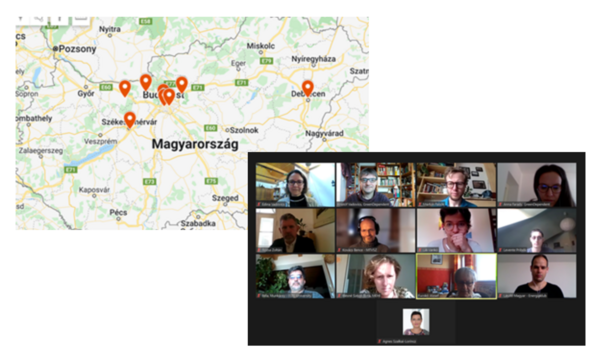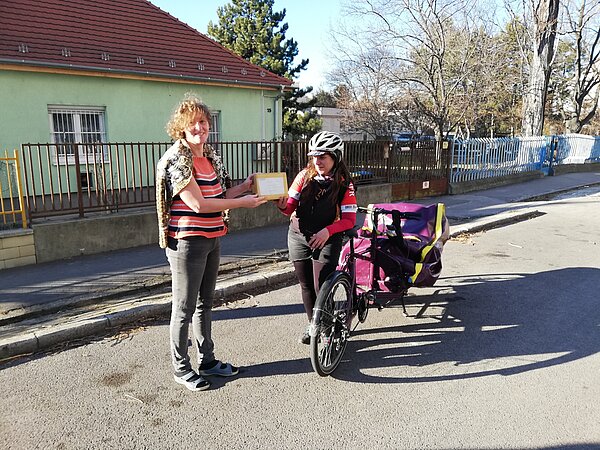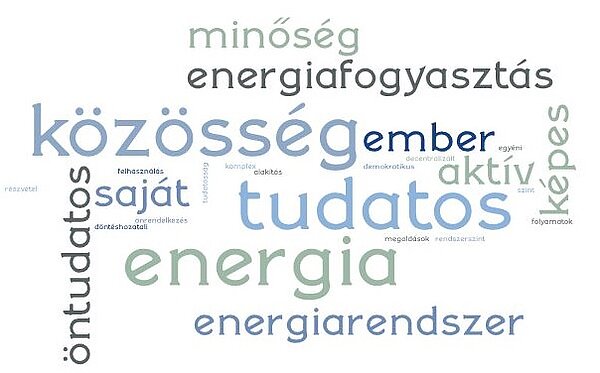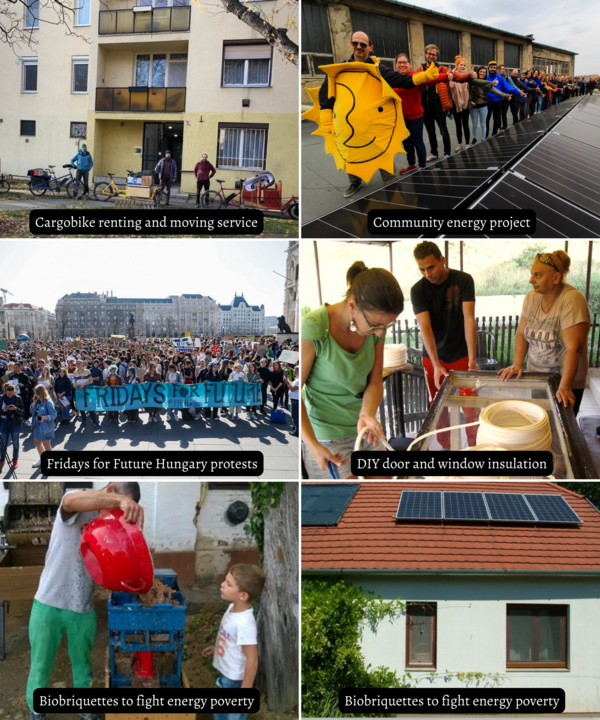Unlike the other workshops in Belgium and Spain where a region-within-the-country focus was adopted, for the workshop in Hungary the country as a whole has been chosen as a ‘region’. After a very careful deliberation process the workshop organisers found that there are not very significant differences between the various regions of Hungary in terms of energy citizenship, not least because there are no differences in legislation related to initiatives that can be categorised as cases of energy citizenship. Furthermore, the number of experts working in areas related to energy citizenship is smaller compared to the Western European regions where the workshop was also organized and they are (as well as the organisations they are affiliated with) scattered all over Hungary. The map below shows the location of participants at the workshop, representing both practitioners and researchers, as well as experts engaged in both research and practice.
Due to the Covid pandemic situation the experts gathered in an online workshop. However, organisers still wished to create the atmosphere of a face-to-face workshop situation by delivering snack boxes to participants prior to the event – and through the form of delivery, a cargo bike courier service, also provide an example of energy citizenship.
How can the term energy citizenship be translated into Hungarian?
The literal translation on ENCI into Hungarian (‘energia állam-polgárság’ - energy state-citizenship) is not in use in Hungarian at all, it is a completely novel notion and terminology. The workshop participants understood the term but some had difficulty ‘picturing’ it and explaining it as described below. There was a debate whether the term ‘állam’ (state) should be omitted, but finally the decision was made that ‘állampolgárság’ is better for this instance. There are various reasons for this. First, in Hungarian ‘polgárság’ in itself does mean citizenship, but at the same time, especially lately it has also been extensively used as a reference to the social class between the working class and aristocracy, especially by some Hungarian political entities, which might cause confusion in some people and may also evoke particular connotations of the term. Second, the more established term “active citizenship” has been translated into Hungarian as “aktív állampolgárság”, and has been rather widely used. Thus came the decision to use the term ‘állampolgárság’, which clearly means citizenship (= a member of society) in Hungarian, and can also thus be connected to the already established understanding and definition of “active citizenship”.
How is energy citizenship understood by workshop participants?
During the discussion on what energy citizenship could mean, three lines of thought emerged, two of them somewhat overlapping. First of all, it needs to be recognised that some participants preferred not to provide a definition for energy citizenship at the time of the workshop, saying that although they do understand that their work can be connected to it in some ways, they are not yet using the term actively, and thus would not describe what they do in relation to energy citizenship. Then, there were participants who highlighted the aware, (climate-) conscious citizen and/or energy user aspect of the term. Finally, there were participants who attempted to grasp the complexity of the term, pointed out both the individual and systemic aspect of it, and the fact that the transformation of the energy system needs to happen at both of these levels.
In addition, the importance of empowering citizens and empowered citizens taking control in a decentralised energy system was discussed by several participants. It is also worth noting that some participants noted the connection between ‘active and responsible citizenship’ and ‘energy citizenship’, saying that the latter could be understood to be a specific manifestation of the former. However, even in this understanding of energy citizenship a connection between the individual and community was made, and the fact that both aspects are important noted.
The word cloud below provides a summary of the various definitions provided. The words that stand out are “community” (közösség), “conscious/aware” (tudatos), “energy” (energia), and then “quality” (minőség), “energy consumption” (energiafogyasztás), “energy system” (energiarendszer), “self-aware” (öntudatos), and also “human”, “active”, “own” and “has the ability”.
Which examples of energy citizenship were identified at the workshop?
Even though there was a certain level of hesitation related to the definition of energy citizenship by participants, numerous examples were mentioned and discussed during the workshop, and participants kept adding examples to the initial selection.
The examples listed include both concrete and localised cases of energy citizenship (e.g. Energy efficient Wekerle, Community wind turbine in Vép, etc.) and types of cases or "generic" examples (e.g. SECAPs and climate strategies, solar panel owners, etc.). Participants repeatedly recognised that in the case of the latter many concrete examples could be listed as well, so it seemed to be more practical to mention a case type (generic example) instead. About a third of the examples mentioned at the workshop fall in this category of case types.
Importantly, the majority of the cases identified in the countryside are to do with communities or households living in energy poverty (e.g. Heat columns, "Light-bringers", Biobriquette programme). In Hungary, energy poverty is important and pressing issue as around 20% of the population is impacted by it. It appears that as a result, it is also an important aspect of energy citizenship.
Although the definition of energy citizenship was not limited during the discussion to any specific foci, there was only one example mentioned with a focus on food/nutrition (the Vegan January campaign). There were cases with a focus on direct energy consumption/production, on mobility, and quite a number with a more holistic focus (e.g. eco villages, the Degrowth movement, Co-housing, etc.). Some participants noted that even though some of the examples gathered are more general (e.g. Network of new eco communities) and thus not solely focused on energy, they still considered them important cases from the point of view of energy citizenship.
Overall, workshop participants noted that it was very useful to initiate a discussion on energy citizenship in Hungary with the workshop, and they expressed an explicit wish for continuing the dialogue. Furthermore, they welcomed the fact that EnergyPROSPECTS started communication about energy citizenship and that this way the project is actively introducing the term into professional and mainstream discussions, which, they believe, will contribute to raising awareness, examples becoming better known, and overall hopefully to a greater level of active energy citizenship.



